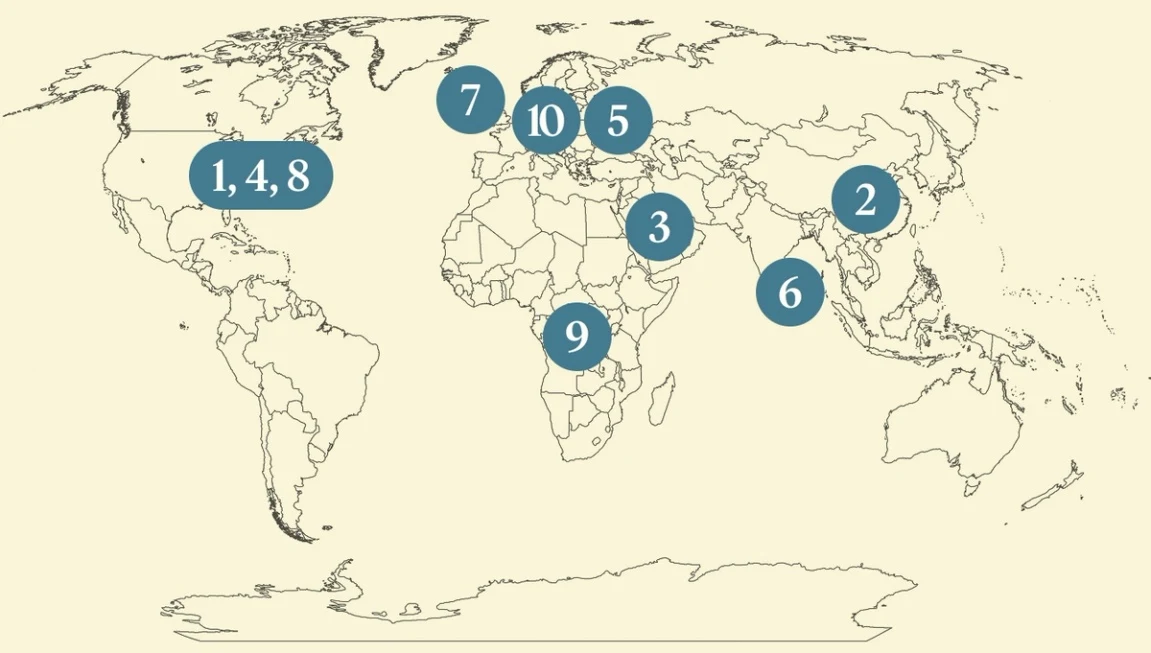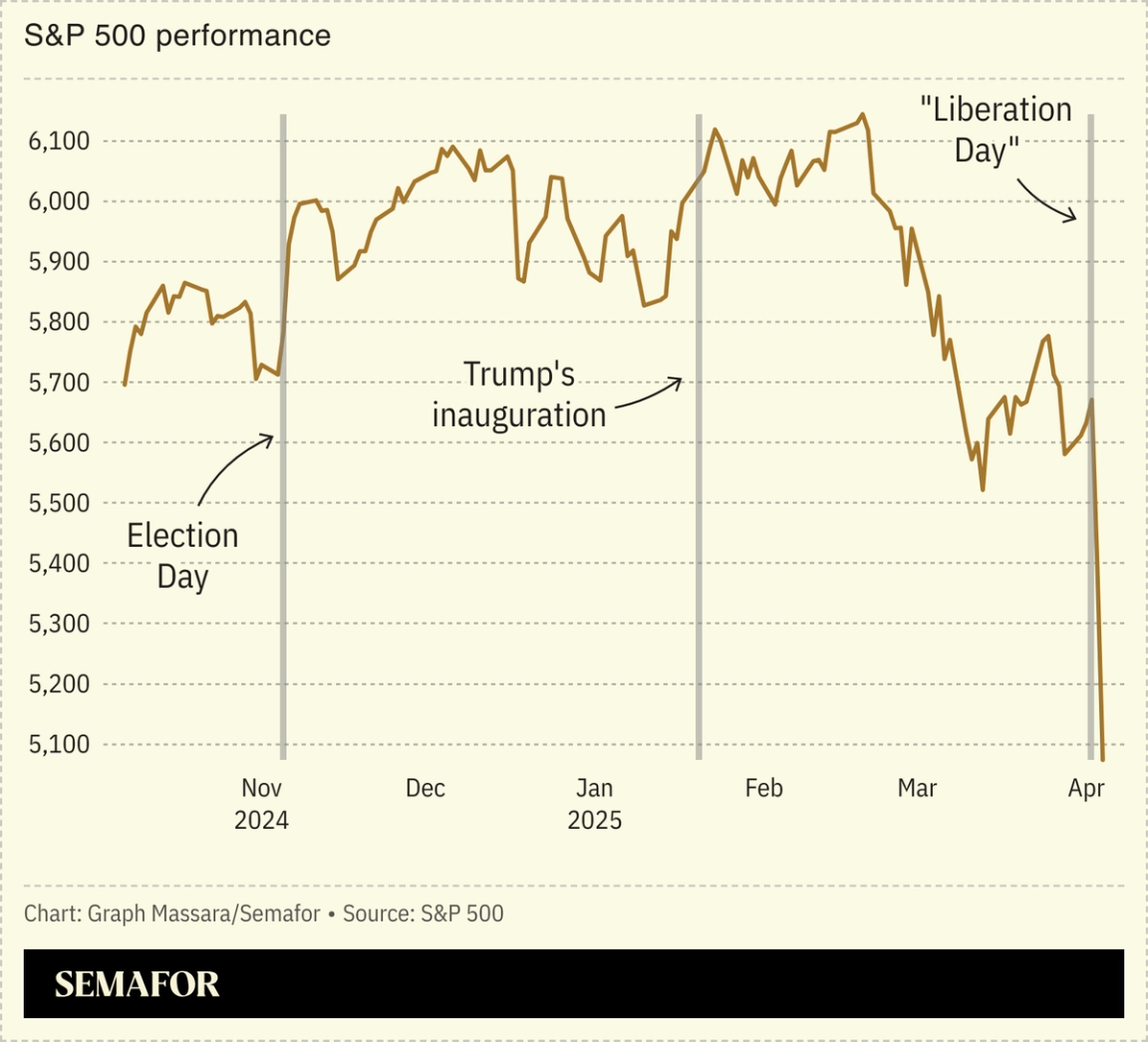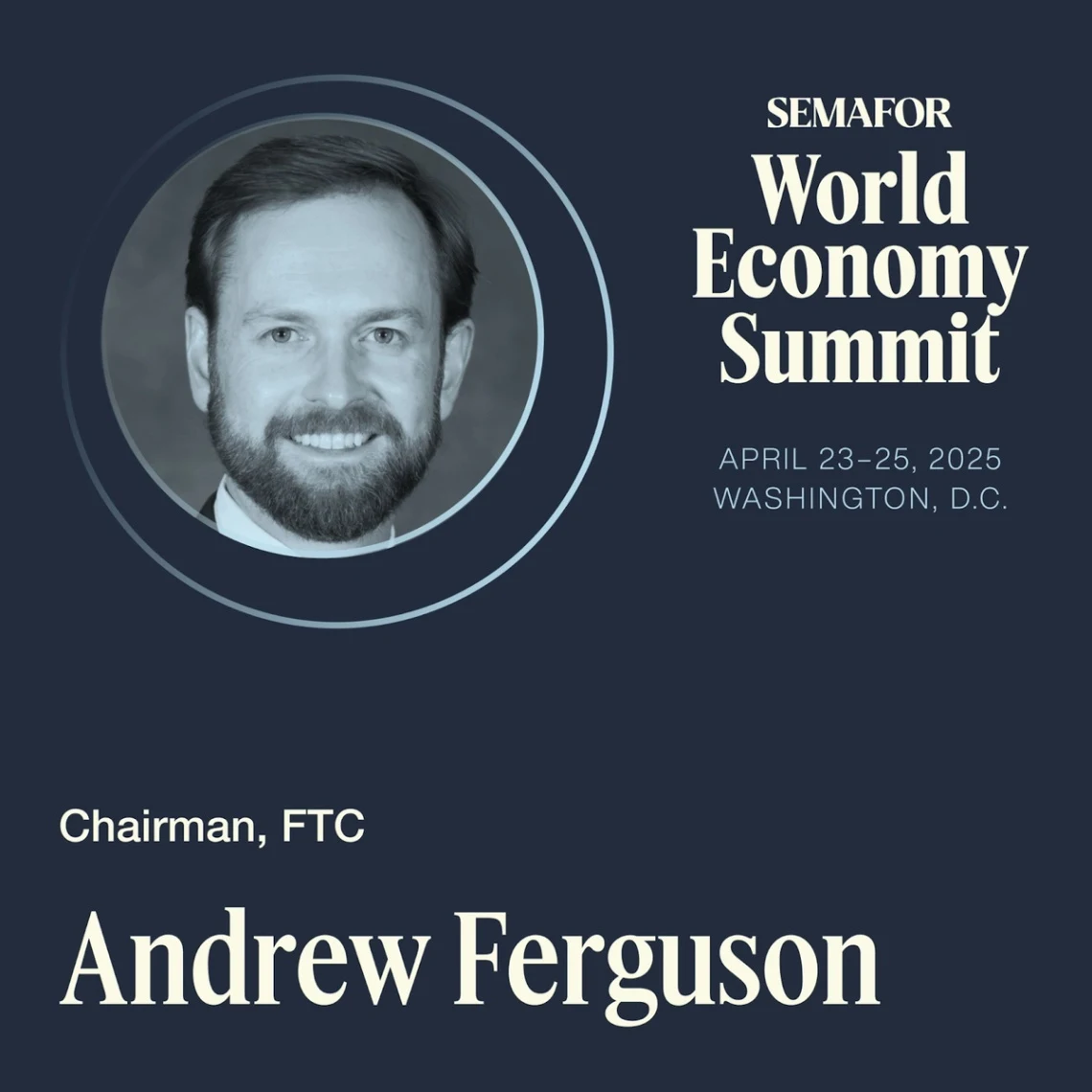| | |  | Flagship |  |
| |
|
The World Today |  - Baseline tariffs take effect
- China hits back and waits
- Global markets brace
- Musk attacks Navarro
- Russia hammers Ukraine
- Sri Lanka’s regional tightrope
- AI masters Minecraft
- Laws of complexity
- How bonobos communicate
- Most dangerous cycle race
 A vacationing toddler happens upon a 3,800-year-old amulet. |
|
Baseline US tariffs take effect |
 US President Donald Trump’s baseline 10% tariffs took effect Sunday as America’s trading partners weighed how to respond ahead of further duties that hit later this week. Reactions have been mixed so far: China retaliated, imposing 34% tariffs on the US, while other nations sought delays or negotiations; more than 50 countries have reportedly asked the White House for talks. Some US trading partners, including Indonesia and Taiwan, said they had no plans to push back. The diversity of responses underscored the unprecedented nature of Trump’s attack on global trade and the risk of lasting trade barriers. “What can go up quickly does not necessarily come down fast,” one economist said. |
|
Little hope for US-China ties |
 Florence Lo/Reuters Florence Lo/ReutersChina’s swift retaliation to US President Donald Trump’s latest tariff round reflects how badly Beijing’s relationship with Washington has deteriorated, with virtually no lines of communication open between the two powers. Beijing had been cautiously optimistic about Trump’s second term, but Chinese officials have failed to make inroads with his administration, The Wall Street Journal reported. China’s response, which Washington considers an escalation, is in line with leader Xi Jinping’s trade strategy to “hit back – and wait,” Trivium China analysts wrote. Trump and Xi “are locked in a paradox of pressure and pride,” one expert said, and with neither wanting to appear weak, a “cycle of tit-for-tat retaliation” is inevitable, the Journal wrote, at least in the near term. |
|
Global markets brace for turbulence |
 Global investors are bracing for another rocky week after US tariffs began taking effect. Chinese markets faced a “grim Monday,” Bloomberg wrote, as Beijing retaliated against the punishing duties, while Taiwan regulators imposed temporary controls on short-selling to try and limit the turmoil. Foreshadowing what may come after the opening bell Monday, Middle East markets — which trade on Sundays — suffered their worst decline since 2020. On Wall Street, which just had its worst week in five years, uncertainty is leading firms to call off initial public offerings and denting hopes of deal-making resurgence. US Treasury Secretary Scott Bessent again dismissed fears of a recession, saying Sunday that the market “consistently underestimates Donald Trump.” |
|
Trump allies divided on trade |
 Vincent Alban/Reuters Vincent Alban/ReutersElon Musk on Saturday called for a vast free trade zone while taking aim at a fellow White House adviser, spotlighting a deeper division within the American right. Musk criticized US President Donald Trump ally Peter Navarro, a key architect of Trump’s aggressive tariff agenda, revealing the fractures between Trump’s traditional “MAGA base and the business and tech leaders who have rallied around the president,” Semafor’s Shelby Talcott reported. But though further disagreements will no doubt emerge, the coalition between the “nationalist right and the tech right” will likely hold, The Atlantic wrote, united as they are by a shared opposition to “wokeness.” |
|
Russia intensifies strikes on Ukraine |
 Valentyn Ogirenko/Reuters Valentyn Ogirenko/ReutersUkrainian President Volodymyr Zelenskyy called on the West to dramatically increase the pressure on Moscow as Russia intensified strikes on Ukraine over the weekend. Zelenskyy said the attacks, which included a deadly assault on his hometown, showed the Kremlin is not interested in peace. A top Russian envoy said talks with the US could resume this week, although analysts believe Russia is deliberately slow-walking negotiations. Washington’s engagement with Moscow has sparked speculation that US President Donald Trump is trying to pull a “Reverse Kissinger” to isolate China. But that “is both imprudent and wrong,” two experts argued in Foreign Affairs, noting that Henry Kissinger, “a committed realist,” would never have made such a calculus. |
|
India tries to counter China in Sri Lanka |
 Thilina Kaluthotage/Reuters Thilina Kaluthotage/ReutersIndia and the United Arab Emirates pledged to develop an energy hub in Sri Lanka as New Delhi looks to counter China’s growing influence in the island nation. Beijing has provided Sri Lanka — which is situated on one of the world’s busiest shipping routes —with billions in development loans and recently signed a deal for an oil refinery. India, concerned by China’s expanding footprint, has also worked to grow its ties, giving Colombo substantial financial aid following the island’s 2022 economic collapse. Sri Lanka is emblematic of the larger struggle playing out in what New Delhi considers its backyard: China has bolstered its economic and military ties across the Indian Ocean, including investing in 46 commercial ports. |
|
Google AI masters Minecraft |
 Mojang Studios Mojang StudiosAn artificial intelligence system made by Google’s DeepMind AI lab has proven surprisingly adept at mastering the game of Minecraft without being taught the rules. Experts said the research marks a step toward the development of more advanced AI that can learn from its surroundings. In Minecraft, players explore a virtual, randomized world and use resources to create items: The AI, dubbed Dreamer, quickly learned the game through trial and error on its own, eventually managing to collect a diamond — a difficult task that requires multiple steps. Its success shows that AI is able “to understand its physical environment and also to self-improve over time, without a human having to tell it exactly what to do,” one researcher said. |
|
|  Andrew Ferguson, Chairman, FTC, will join top global leaders at Semafor’s 2025 World Economy Summit, taking place April 23-25, 2025, in Washington, DC. As the first major gathering since the new US administration took office, the summit will feature on-the-record discussions with 100+ CEOs. Bringing together leaders from both the public and private sectors — including congressional leaders and global finance ministers — the three-day summit will explore the forces shaping the global economy and geopolitics. Across 12 sessions, it will foster transformative, news-making conversations on how the world’s decision-makers are tackling economic growth in increasingly uncertain times. April 23-25 | Washington, DC | Learn More |
|
A new theory of complexity |
A new theory proposes that complexity increases over time in living and non-living systems, and that this constitutes a fundamental principle of the universe. According to the hypothesis, just as in biological evolution — whereby organisms become increasingly complex over generations through a process of selection — so do other physical systems. Critics have pointed out that the idea is practically impossible to test, but if right, the implications are threefold, one researcher said: First, that biology is only one example of evolution; second, that there may be “an arrow in time that describes this increasing complexity,” much like the second law of thermodynamics describes entropy; and third, that information is “a vital parameter of the cosmos, similar to mass, charge and entropy.” |
|
Bonobo calls reveal language-like traits |
 Eric de Redelijkheid/Flickr/CC BY-SA 2.0 Eric de Redelijkheid/Flickr/CC BY-SA 2.0Bonobos’ vocal calls share an unexpected feature of human communication, suggesting that the building blocks of language developed earlier in our evolutionary history than previously thought. Bonobos, our species’ joint-closest relative alongside chimpanzees, make noises that stand for concepts, like “run” or “predator.” Now, researchers have found that the apes appear to use one sound to modify the meaning of another, New Scientist reported: For example, combining the sounds for “pay attention” and “I am excited” seemed equivalent to “pay attention to me because I am in distress.” This ability is key to human language, but had never been observed among animals before. The finding suggests the roots of language existed at least seven million years ago, when bonobos and humans diverged. |
|
Cycling great set to compete in ‘hell’ race |
 Jan de Meuleneir/BELGA via Reuters Connect Jan de Meuleneir/BELGA via Reuters ConnectThe world’s best cycle racer is gearing up to take part in one of the world’s most difficult and dangerous competitions — the Paris-Roubaix race, commonly known as “the Hell of the North.” Three-time Tour de France champion Tadej Pogačar is “chasing history” at the April 13 race, The Wall Street Journal’s sports columnist wrote: Pogačar has won so much that he can really only be compared to one other cyclist, long-retired 1960s icon Eddy Merckx. Merckx has one thing “Pogi” does not — a victory in the Paris-Roubaix one-day race, 161 miles riding “narrow, dusty, molar-rattling roads” of northern France. Finishers look like “muck-covered mole people,” while many never make it to the end; crashes are frequent. The risks mean no reigning Tour winner has competed in 34 years. But Pogačar ”will ignore the warnings and line up.” |
|
|  April 7: - ASEAN finance ministers and central bank chiefs meet in Kuala Lumpur.
- A new tunnel that runs underneath London’s River Thames opens.
- Netflix releases Kill Tony: Kill or Be Killed, starring comedian Tony Hinchcliffe.
|
|
|  Emil Aladjem/Israel Antiquities Authority Emil Aladjem/Israel Antiquities AuthorityA scarab seal discovered at what was once a Bronze Age settlement in Israel reveals the cultural ties between the ancient Canaanite and Egyptian civilizations. The 3,800-year-old amulet was found by a toddler while on vacation with her family at the Tel Azekah site, according to the Israel Antiquities Authority. Scarab seals such as this one have typically been found in graves, the remains of public buildings, and some homes, one museum curator said, and sometimes “bear symbols and messages that reflect religious beliefs or status.” The seal is set to feature in a special exhibition in Jerusalem alongside other relics from the Canaanite and Egyptian civilizations, Artnet News wrote. |
|
|   Udo Salters/Sipa USA Udo Salters/Sipa USAWith Bilt Rewards, Ankur Jain thinks he’s hit on one of the “category-defining” startup ideas — that renters should be able to earn credit card-style rewards for paying their landlords on time and boost their credit score in the process. And the CEO is hoping to turn Bilt into a $10 billion business with fewer than 200 employees. “Every step of the way, we keep asking ourselves, why do people throw people at problems?” he told Semafor’s Andrew Edgecliffe-Johnson. “And how do you do that in a way that’s automated [instead]?” |
|
| |























Comments
Post a Comment
Welcome to my geopolitics blog site. This is a Hawaii Island news site focusing on geopolitical news, analysis, information, and commentary. I will cite a variety of sources, ranging from all sides of the political spectrum.